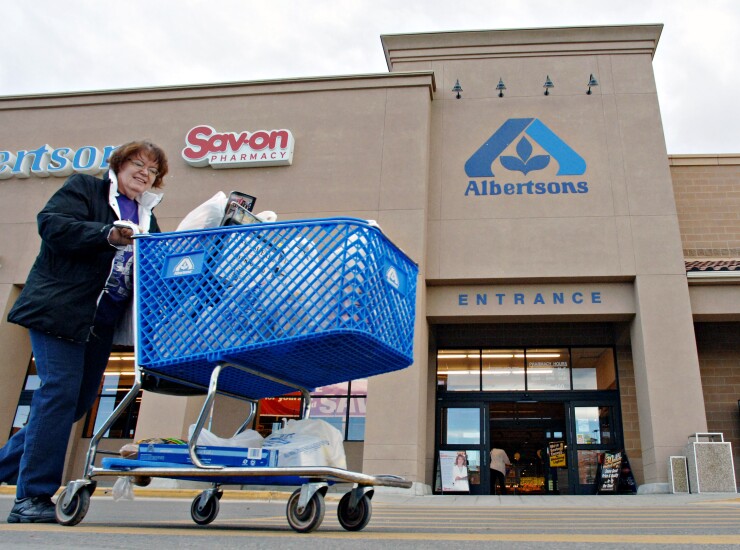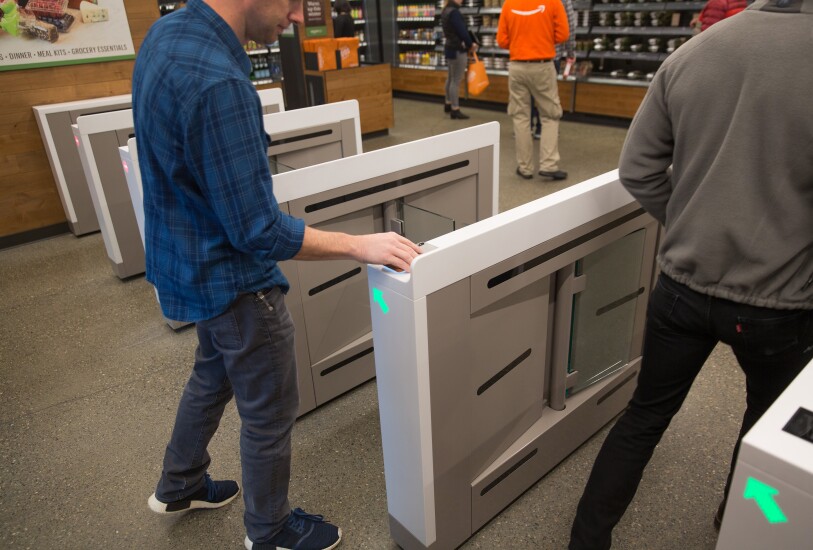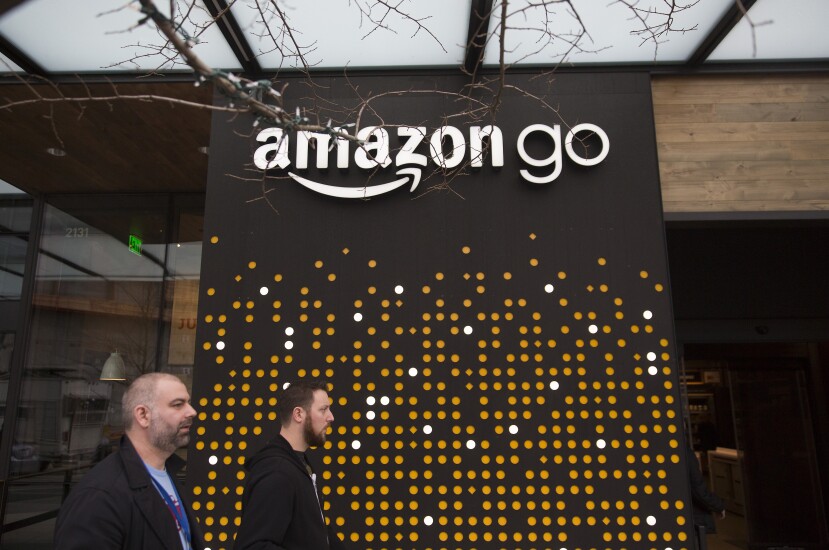
This competitive trend is particularly heated among grocery stores, where Amazon competes directly through its ownership of Whole Foods and AmazonFresh.
This listicle is compiled from reporting by PaymentsSource writers including John Adams, Kate Fitzgerald, David Heun and Brielle Diskin. Click the links in each item to read more.

Groceries get the Go treatment
Albertsons unveiled its plans for an Amazon Go-style store during a presentation to analysts last month. The store's
“We’re experimenting with Amazon Go-like technology today, where for example someone could go in and pick up a Plated order, it would know that you’re in the store, it would tender and order and you can leave outside of the check stand,” said Sampson.
In broad strokes, this is very close to Amazon's model, which uses a mobile app to determine which customers are in its store and automatically charge their default payment card for any products they walk out with.

Amazon Go-in-a-box
"Our company would exist and we would be doing this without pressure from Amazon, but we have gotten more funding because of Amazon and that pressure is felt and understood by retailers," said Jordan Fisher, CEO of
The concept strongly resembles Amazon Go. At the time Standard Cognition developed its technology, Amazon Go was still in a prolonged pilot, reportedly struggling to deal with large crowds. Despite those problems, Amazon has proven that such a model is possible, Fisher said.
"We would be in much more of a research phase, trying to convince the world that this is even theoretically possible," Fisher said. "Because of Amazon's pressure there's more of a willingness to accept this."

Investing in the next Go
"It's the last mile," said Steve Sarracino, founder and partner at Activant Capital. "You know who is doing what … and you can connect a shopper to an item."
Activant's portfolio includes a recent lead on a $17 million investment in NewStore, a Boston-based mobile retail platform that combines in-store and online engagement to create a single view of a consumer's shopping and payments across channels. Over the past couple of years, Activant has been part of more than $100 million in investments in
The New York-based Activant has also been part of more than $60 million in investments in
All of these technologies aim to bring online shopping and mobile payment into stores—an
RetailNext's sensors play one of the most interesting roles in this evolution, according to Sarracino. The sensors, which have their roots in casino security, have been improved to distinguish staff from shoppers, and can ID where shoppers are in stores and what they are buying.
"The shopping experience needs to change, and retailers now understand that and consumers are craving it," said Bridget Johns, head of marketing and customer experience at RetailNext.

China's head start
A cashierless chain called
By comparison,
In China, BingoBox isn't the only major cashierless chain in town. JD.com, China's second- largest online retailer after Alibaba, is in the midst of opening hundreds of unstaffed stores in collaboration with the real estate developer China Overseas Land & Investment, according to

Amazon Go 2.0
The new stores will be in the Willis Tower, formerly the Sears Tower, and the Ogilvie Transportation Center, a commuter rail terminal that includes retail, reports the
The Willis Tower location is a little ironic, since Go and Amazon in general are considered to be major threats to traditional retail stores such as Sears, though Sears has not been headquartered in the Chicago skyscraper for many years.





